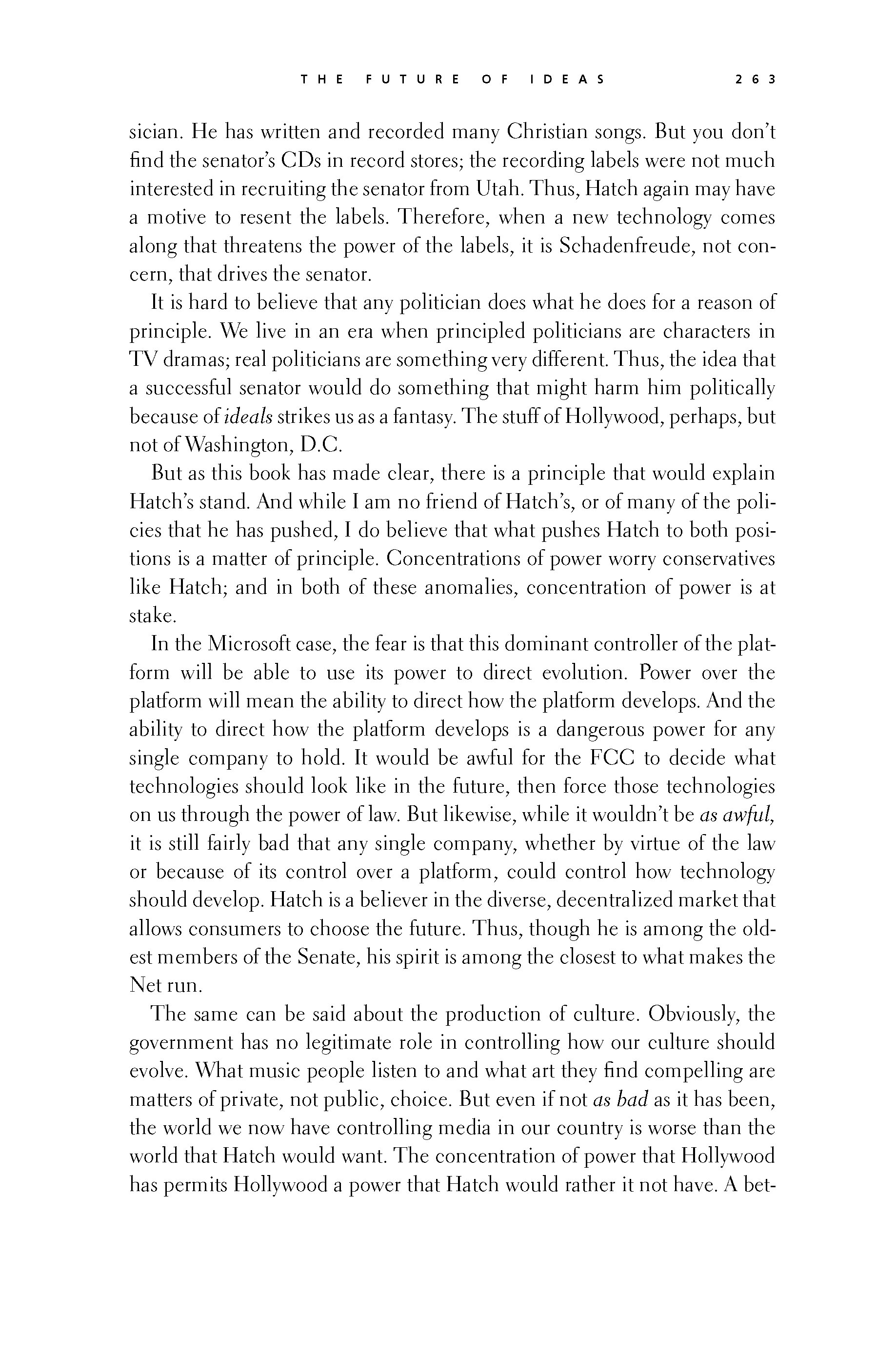 p262 _
-chap- _
toc-1 _
p263w _
toc-2 _
+chap+ _
p264
p262 _
-chap- _
toc-1 _
p263w _
toc-2 _
+chap+ _
p264
sician. He has written and recorded many Christian songs. But you don't
find the senator's CDs in record stores; the recording labels were not much
interested in recruiting the senator from Utah. Thus, Hatch again may have
a motive to resent the labels. Therefore, when a new technology comes
along that threatens the power of the labels, it is Schadenfreude, not con-
cern, that drives the senator.
It is hard to believe that any politician does what he does for a reason of
principle. We live in an era when principled politicians are characters in
TV dramas; real politicians are something very different. Thus, the idea that
a successful senator would do something that might harm him politically
because of _ideals_ strikes us as a fantasy. The stuff of Hollywood, perhaps, but
not of Washington, D.C.
But as this book has made clear, there is a principle that would explain
Hatch's stand. And while I am no friend of Hatch's, or of many of the poli-
cies that he has pushed, I do believe that what pushes Hatch to both posi-
tions is a matter of principle. Concentrations of power worry conservatives
like Hatch; and in both of these anomalies, concentration of power is at
stake.
In the Microsoft case, the fear is that this dominant controller of the plat-
form will be able to use its power to direct evolution. Power over the
platform will mean the ability to direct how the platform develops. And the
ability to direct how the platform develops is a dangerous power for any
single company to hold. It would be awful for the FCC to decide what
technologies should look like in the future, then force those technologies
on us through the power of law. But likewise, while it wouldn't be _as_awful,_
it is still fairly bad that any single company, whether by virtue of the law
or because of its control over a platform, could control how technology
should develop. Hatch is a believer in the diverse, decentralized market that
allows consumers to choose the future. Thus, though he is among the old-
est members of the Senate, his spirit is among the closest to what makes the
Net run.
The same can be said about the production of culture. Obviously, the
government has no legitimate role in controlling how our culture should
evolve. What music people listen to and what art they find compelling are
matters of private, not public, choice. But even if not _as_bad_ as it has been,
the world we now have controlling media in our country is worse than the
world that Hatch would want. The concentration of power that Hollywood
has permits Hollywood a power that Hatch would rather it not have. A bet-
[[263]]
p262 _
-chap- _
toc-1 _
p263w _
toc-2 _
+chap+ _
p264